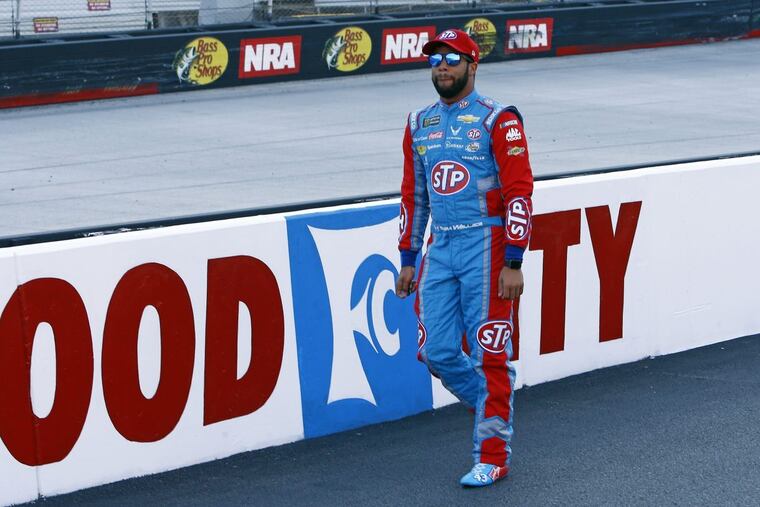Bubba Wallace could change the race by establishing a legacy in NASCAR
Nearly five decades after Wendell Scott in 1971, Wallace is the first African-American with a full-time ride in the Monster Energy NASCAR Cup Series.

If Darrell "Bubba" Wallace Jr., rookie in the Monster Energy NASCAR Cup Series, played basketball or football, his physical measurements might be of interest.
Of course, if Wallace played one of those sports instead of being a full-time driver at the highest level of stock car racing, he'd likely be viewed as just another athlete.
Wallace, however, does race automobiles, and as an African-American, he competes in a sport that is populated almost exclusively by white males.
NASCAR's roots in the "Jim Crow" era of the American South have made it the most socially polarizing sport in the country. Issues of race and exclusion have always been a point of conversation.
So in that context, the only measurement of Wallace that matters is how broad his shoulders are. Whether he asked for it or not, the burden of being viewed as an agent of change for NASCAR has been placed on them.
Wallace is still just the eighth African-American known to have started any race at NASCAR's highest level and the first driver to race full time since NASCAR Hall of Fame inductee Wendell Scott in 1971.
Scott made 495 starts over 13 years starting in 1961, when he broke the color barrier. His win at the old Jacksonville (Fla.) 200 in 1963 still represents the only victory by an African-American on the top NASCAR level.
Before Wallace was given a permanent ride by Richard Petty Motorsports to start the 2018 Monster Energy Cup Series, the seven African-American drivers besides Scott (that group included Wallace) had combined for 11 starts on a circuit that dates to 1949.
When Wallace races in the AAA 400 Drive for Autism on Sunday at Dover International Speedway, it will be his 11th start this year. He is now the full-time driver of the iconic No. 43 car.
Of course, Wallace wants to be known simply as a driver and not the "African-American driver." The truth is that the qualifier does detract from Wallace's achievement.
He was not gifted the ride by Richard Petty Motorsports because he is black. Wallace worked his way up the ranks. Starting in 2010 in NASCAR's regional/developmental K&N Pro Series East, he won Rookie of the Year and in 2012 was promoted to the Xfinity Series. In 2013, Wallace also signed to drive for Kyle Busch Motorsports in the Camping World Truck Series. Wallace made his first Monster Energy Cup start in 2017 at the Pocono 400 and raced four times for Petty.
He was announced as the full-time driver of the No. 43 car for the 2018 season on Oct. 25. Wallace replaced Cuban-American Aric Almirola, who joined Stewart-Haas Racing.
NASCAR's history of racism and segregation can't be ignored. There is no way to gauge how many racers of color or female racers were lost because they were flat-out denied opportunities because of who they were.
During the 2004 season, NASCAR created its Drive for Diversity program, which is designed to attract minorities and females to the sport as drivers, crew members, sponsors and owners.
Kyle Miyata Larson, whose mother spent time in a Japanese-American internment camp as a child during World War II, is considered the most successful graduate. He has been on the Monster Energy Series full-time since 2014 and has five wins and 67 top-10 finishes.
Another graduate is Mexico's Daniel Suarez, who in 2106 became the first foreign-born Xfinity Series champion and has raced full-time on the Monster Energy Cup for Joe Gibbs Racing since 2017.
Given the history of African-Americans and the societal impact, however, Wallace has the highest profile. His outgoing and friendly nature has made him a fan favorite.
Finishing second at the 2018 Daytona 500 in February — Black History Month — has only raised Wallace's profile.
"There is only one driver from an African-American background at the top level of our sport …" Wallace tweeted when he got the full-time ride with Richard Petty Motorsports, noting that it will continue to be brought up. "I am the 1. You're not gonna stop hearing about 'the black driver' for years. Embrace it, accept it and enjoy the journey."
That is exactly what most people who care about NASCAR want to do.